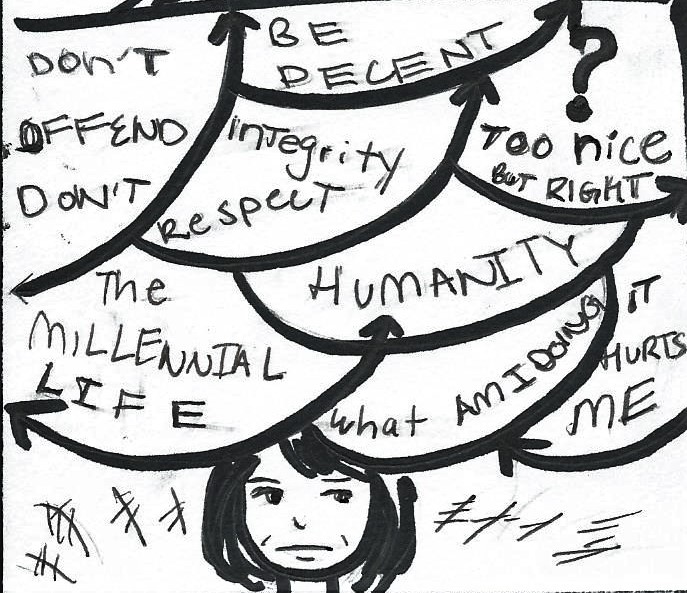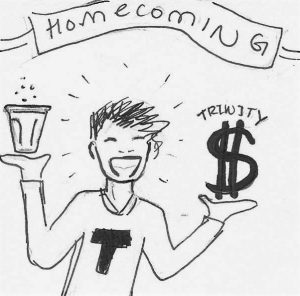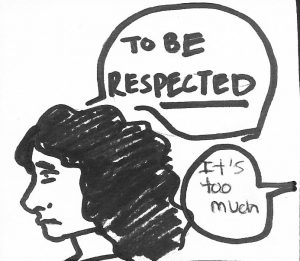By Aidan Turek ’20
CONTRIBUTING WRITER
“There is no wealth like knowledge, no poverty like ignorance,” as the saying goes. I am an ignorant and privileged white male. Or, I am an honest individual being bullied by leftist radicals preaching free speech while condemning what I say as hateful. Both sides claim to have a monopoly on truth—that their worldview is correct—and both act accordingly. We live in an age where objectivity is being tested by extreme forces of opinion and belief. These are never entirely misguided, but they always push the individual further from an understanding on both sides.
The crusade for political correctness can be seen from this Manichaean perspective; there is the force of absolute good, and the force of absolute evil. One team fights for an end to bigotry, the other for the protections laid out in the First Amendment. Both sides fight for the same idea-justice-but execution thereof leads to divisiveness and conflict. There are extremists on both sides of this idea of “political correctness,” and I do not believe either side can claim to execute justice fairly in each battle. It is safe to assume that at some point someone has been unable to make a point because they were not allowed to speak. Likewise, at some point someone has made a joke that went too far, or said something too personal, or used a word which they should not have.
We must accept this idea first, that we are naturally fallible, and, while what we fight for might be good and pure, our actions are not thus equally virtuous. I can not tell you when you should be politically correct, when you should refrain from speaking, and when you should speak up. I can’t tell you when exactly correctness has gone too far, like when a debate should have occurred, when an issue really should have been argued instead of being avoided. I do not think anyone can tell you what is right and what is wrong, and nowadays education is a necessity.
It does not suffice to be ignorant of concepts like microaggressions or the fallacy of colorblindness. But this proverbial sword of education is double-edged, for the light that can bring enlightenment also has the power to singe the ignorant. I have had occasion to correct a friend, saying something along the lines of “you shouldn’t have said that.” He looked at me for a second, disappointed, I think, that I thought so low of him as to directly chastise him, and so he went on saying what he had before. What was said is immaterial; the result of that exchange was that both myself and my friend liked each other less. He avoided talking to me, thinking me as prude, and I likewise avoided him, thinking him as a bigot. A chance for development instead made things worse. My point is not that political correctness is wrong, but that we must not forget its true meaning.
I’ve used ‘political correctness’ as a weapon before. Instead of us learning more about each other and our coming to a mutual understanding, what happens when correctness is used as a weapon is that both sides part with a certain distrust in the other side. Neither side learns, and instead the divide of ‘liberal nut-job’ against ‘bigoted Trump-supporter’ is reinforced, not healed. When we are brusque and curt in our delivery, when we confuse ignorance for malice, and custom for institutionalized hatred, the result is mutual dissatisfaction. I do not claim to speak perfectly for justice, or from a position of respectable wisdom. Instead, I appeal to our common desire for understanding. All in all, political correctness can be a great thing. It can help a community reach a deeper understanding of the complex issues of race relations, religion, and political partisanship which permeate the American state. As in so many other endeavors, it does not suffice to be wholly correct, and, in execution of political correctness, we all too often encourage conflict. That which could bring people together breaks them apart. Never be afraid to speak against injustice when you see it, and never forget that the struggle for justice is not a weapon to lord over our peers. If my words have failed to satisfy, perhaps I can leave you with a quote by someone far wiser than I. From Siddhartha Gautama; “Words have the power to both heal and destroy. When words are both true and kind, they have the power to change the world.”
Words Can Be Much More than Politically Correct






+ There are no comments
Add yours